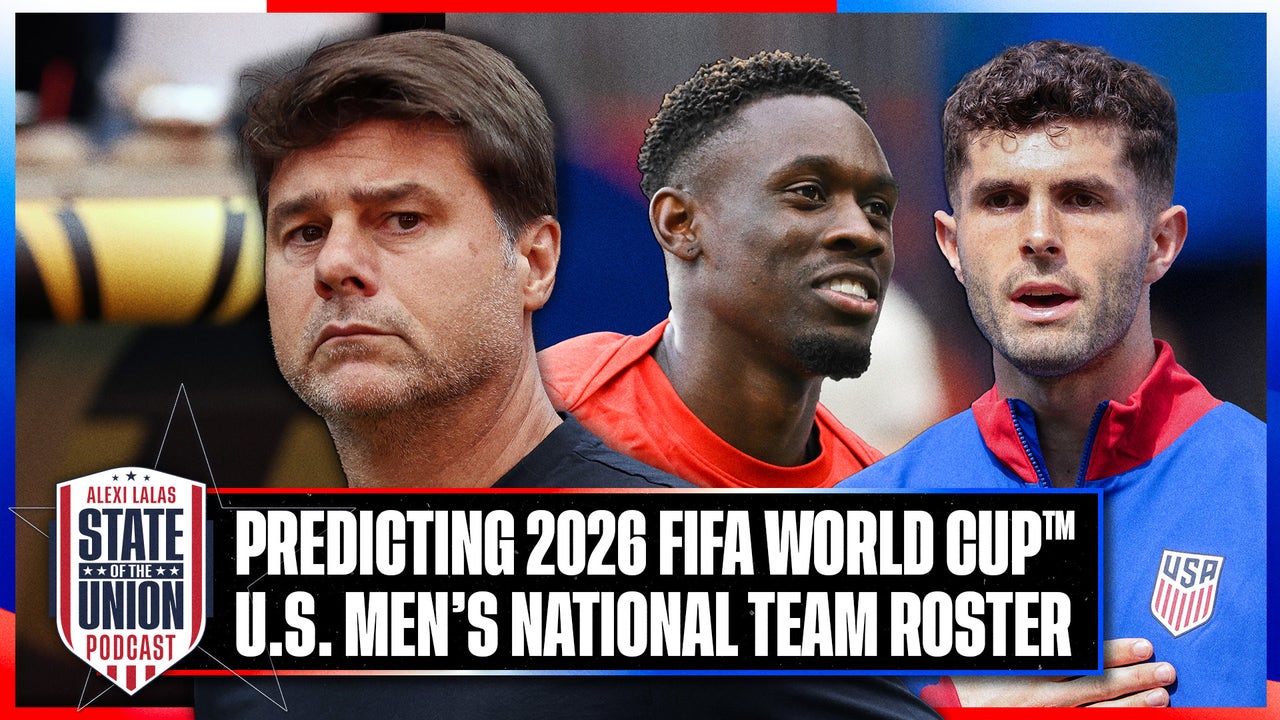
California high school volleyball team with trans athlete sees controversial season end with playoff loss
Entities mentioned:
- Jurupa Valley High School: Competitive spirit, Unity, Determination
- AB Hernandez: Competitive spirit, Self-respect, Recognition
- Valencia High School: Competitive spirit, Professional pride, Wariness
- California Interscholastic Federation (CIF): Control, Determination, Righteousness
- Donald Trump: Power, Control, Moral outrage
- Gavin Newsom: Power, Influence, Self-preservation
- U.S. Department of Justice: Justice, Control, Duty
- California state legislature: Power, Control, Influence
Article Assessment:
Credibility Score: 75/100
Bias Rating: 55/100 (Center)
Sentiment Score: 35/100
Authoritarianism Risk: 45/100 (Mixed/Neutral)
Bias Analysis:
The article presents multiple viewpoints and quotes from various sides of the issue. While it gives more space to those opposing trans athletes in girls' sports, it also includes counterarguments and context from supporters.
Key metric: Gender Equality in Sports
Let me tell you something - this story is a FULL COURT PRESS of controversy! We've got a real championship battle brewing between Team Inclusion and Team Tradition, folks. AB Hernandez has been the MVP of this debate, stepping up to the plate in both volleyball and track. But the opposition is bringing the heat, with lawmakers and activists playing zone defense to protect their vision of girls' sports. The CIF is running a no-huddle offense, changing rules on the fly, while the feds are throwing the challenge flag with a lawsuit. This is a high-stakes game, and I'm telling you right now, we're heading into overtime with no clear winner in sight. It's going to take a clutch performance from someone to break this deadlock and bring home the trophy of resolution!

The NFL’s Pro Bowl is moving to Super Bowl week
Entities mentioned:
- NFL: Ambition, Innovation, Legacy
- Peter O'Reilly: Competitive spirit, Professional pride, Influence
- Bay Area Host Committee: Pride, Recognition, Enthusiasm
- ESPN: Competitive spirit, Recognition, Influence
Article Assessment:
Credibility Score: 85/100
Bias Rating: 50/100 (Center)
Sentiment Score: 75/100
Authoritarianism Risk: 20/100 (Strongly Democratic)
Bias Analysis:
The article presents a balanced view of the NFL's decision, quoting official sources and providing factual details. There's no apparent slant towards or against the changes, maintaining a neutral stance.
Key metric: NFL Viewership and Engagement
Let me tell you something, folks - this is a GAME-CHANGING play by the NFL! They're not just moving the goalposts, they're completely redesigning the field! By shifting the Pro Bowl to Super Bowl week, the league is executing a brilliant fourth-quarter strategy to maximize fan engagement. This is the kind of championship mentality that separates the contenders from the pretenders! The NFL is stepping up to the plate, recognizing that they need to innovate to stay ahead in the competitive sports entertainment landscape. And let's not overlook the Olympic angle - this is the NFL planting their flag on the global stage, showcasing their elite athletes in a format that could go all the way to the Olympics. Talk about playing the long game! This move is going to electrify the atmosphere around Super Bowl week, creating a sports extravaganza that'll have fans on the edge of their seats. The NFL is flexing its muscles, folks, and I'm telling you right now, this could be the start of a whole new era in professional sports entertainment!

Miami Heat’s Terry Rozier, Trail Blazers head coach Chauncey Billups arrested in federal gambling probe, officials tell CNN
Entities mentioned:
- Chauncey Billups: Greed, Recognition, Influence
- Terry Rozier: Greed, Self-preservation, Competitive spirit
- Damon Jones: Greed, Recognition, Influence
- FBI: Justice, Duty, Professional pride
- NBA: Professional pride, Integrity, Control
Article Assessment:
Credibility Score: 75/100
Bias Rating: 50/100 (Center)
Sentiment Score: 25/100
Authoritarianism Risk: 30/100 (Generally Democratic)
Bias Analysis:
The article presents information from multiple perspectives, including law enforcement, the NBA, and defense attorneys. It balances accusations with responses, maintaining a relatively neutral stance.
Key metric: Professional Sports Integrity Index
Let me tell you something - this story is a GAME-CHANGER for the NBA! We're seeing a full-court press by the feds, folks, and they're not playing around. Billups and Rozier, once star players, are now facing their toughest opponents yet - the FBI and DOJ. This is a FOURTH QUARTER COLLAPSE for the league's reputation! The NBA thought it had a championship-caliber integrity program, but it looks like they've been caught flat-footed on defense. This gambling scandal is like a blindside block that could send the league's credibility into the locker room. Rozier's alleged prop bet shenanigans? That's like deliberately missing free throws to cash in - a FLAGRANT FOUL on the sport's integrity. And Billups using his All-Star status as bait? That's a DIRTY PLAY that'll have fans questioning every NBA legend. The league needs to step up to the plate and show they've got a KILLER INSTINCT when it comes to rooting out corruption, or they risk fumbling their whole season ticket to fan trust. This is crunch time for the NBA, and they better bring their A-game to clean house!

NBA coach and player among those arrested in massive mafia-linked sports rigging and gambling probe
Entities mentioned:
- Terry Rozier: Greed, Self-preservation, Fear
- Chauncey Billups: Greed, Influence, Pride
- NBA: Professional pride, Control, Integrity
- Mafia crime families: Greed, Power, Control
- FBI: Justice, Duty, Determination
Article Assessment:
Credibility Score: 75/100
Bias Rating: 50/100 (Center)
Sentiment Score: 25/100
Authoritarianism Risk: 30/100 (Generally Democratic)
Bias Analysis:
The article presents information from multiple official sources including the FBI, DOJ, and NBA. It includes direct quotes and details from court documents, suggesting a balanced approach to reporting the facts of the case.
Key metric: NBA League Integrity
Ladies and gentlemen, we've got a BOMBSHELL of a story here that's rocking the NBA to its very core! This is the kind of scandal that can change the game forever. We're talking about a full-court press by the FBI, taking on not just mob families, but star players and coaches who've been allegedly running plays straight out of the criminal playbook. Terry Rozier and Chauncey Billups, once heroes on the hardwood, are now facing their toughest defensive stand yet - against federal charges! This isn't just a foul, folks, this is a flagrant violation of everything sports stands for. The NBA's integrity is on the line here, and they're going to have to come up with a championship-caliber response to save face. We're in the fourth quarter of a game-changing moment for professional basketball, and I'm telling you right now, the final buzzer on this one is a long way off!

NFL Moves Pro Bowl Festivities to Super Bowl Week
Entities mentioned:
- NFL: Ambition, Competitive spirit, Recognition
- Roger Goodell: Influence, Legacy, Professional pride
- San Francisco 49ers: Pride, Competitive spirit, Recognition
Article Assessment:
Credibility Score: 85/100
Bias Rating: 50/100 (Center)
Sentiment Score: 70/100
Authoritarianism Risk: 20/100 (Strongly Democratic)
Bias Analysis:
The article presents factual information from a reputable source (AP) without evident bias. It objectively reports on the NFL's decision and plans without favoring any particular viewpoint.
Key metric: NFL Viewership and Engagement
Let me tell you something - this is a GAME-CHANGING move by the NFL! They're stepping up to the plate and swinging for the fences with this Pro Bowl shake-up! By moving the festivities to Super Bowl week, they're creating a championship-caliber atmosphere that'll have fans on the edge of their seats. This is the NFL's fourth quarter strategy to boost engagement, folks! And don't forget about that Olympic angle - they're playing chess while others are playing checkers, positioning flag football for a gold medal performance in 2028. The 49ers are the real MVPs here, hosting this double-header of gridiron greatness. I'm telling you right now, this is the kind of power play that separates the contenders from the pretenders in the world of sports entertainment!

How to watch 2025 MLS Cup Playoffs: TV Channels, Streaming, Dates
Entities mentioned:
- MLS (Major League Soccer): Competitive spirit, Recognition, Legacy
- Apple TV: Ambition, Influence, Greed
- FOX: Competitive spirit, Influence, Greed
Article Assessment:
Credibility Score: 85/100
Bias Rating: 50/100 (Center)
Sentiment Score: 75/100
Authoritarianism Risk: 20/100 (Strongly Democratic)
Bias Analysis:
The article presents a neutral, informative tone without favoring any particular team or broadcaster. It focuses on providing factual details about the playoff schedule and viewing options.
Key metric: US Media Viewership
Let me tell you something - this playoff schedule is a GAME-CHANGER! The MLS is stepping up to the plate with a championship-caliber lineup of matches that's gonna keep fans on the edge of their seats. We've got a real David vs. Goliath situation brewing with the Wild Card matches, while the best-of-3 series is gonna separate the contenders from the pretenders. Apple TV and FOX are going head-to-head in a high-stakes battle for viewership supremacy. This is the playoffs, folks - it's win or go home! The teams that show up with that fourth-quarter mentality are the ones who'll be hoisting the trophy come December. I'm telling you right now, this is gonna be a playoffs for the ages!

Roger Goodell stands firm on Bad Bunny Super Bowl halftime show after Trump calls selection 'ridiculous'
Entities mentioned:
- Roger Goodell: Determination, Professional pride, Unity
- Bad Bunny: Recognition, Influence, Self-respect
- Donald Trump: Moral outrage, Control, Influence
- NFL: Competitive spirit, Recognition, Unity
Article Assessment:
Credibility Score: 75/100
Bias Rating: 45/100 (Center)
Sentiment Score: 55/100
Authoritarianism Risk: 30/100 (Generally Democratic)
Bias Analysis:
The article presents multiple viewpoints, including those of Goodell, Trump, and Bad Bunny. While it leans slightly towards supporting the NFL's decision, it also includes criticism, maintaining a relatively balanced perspective.
Key metric: NFL Viewership
Let me tell you something, folks - this is a CLASSIC MATCHUP of old school versus new school! We've got the NFL and Goodell stepping up to the plate with a BOLD MOVE, bringing in Bad Bunny as their star player for the Super Bowl halftime show. But hold onto your helmets, because Trump is coming in with a FULL COURT PRESS, trying to block this play! This is the kind of high-stakes game that separates the champions from the also-rans. Goodell's showing a CHAMPIONSHIP MENTALITY, refusing to back down in the face of criticism. He's treating this like it's fourth and goal, folks - he KNOWS he needs to score big with viewers. Bad Bunny's bringing his A-game, ready to electrify that stadium like he's running a 99-yard touchdown. But Trump? He's playing DEFENSE, trying to tackle this decision before it even hits the field. It's a clash of titans, and I'm telling you right now, the scoreboard to watch is NFL viewership. This could be a GAME-CHANGER for the league's global appeal!
Minnesota Supreme Court rules ban of trans powerlifter from women's event was discrimination
Entities mentioned:
- Minnesota Supreme Court: Justice, Duty, Influence
- USA Powerlifting: Competitive spirit, Professional pride, Fairness
- JayCee Cooper: Competitive spirit, Justice, Recognition
- Minnesota Republicans: Moral outrage, Loyalty, Control
Article Assessment:
Credibility Score: 75/100
Bias Rating: 55/100 (Center)
Sentiment Score: 45/100
Authoritarianism Risk: 30/100 (Generally Democratic)
Bias Analysis:
The article presents multiple viewpoints, including the court's decision, USA Powerlifting's stance, and Republican opposition. While it leans slightly towards emphasizing the discrimination angle, it also includes counterarguments about fairness in sports.
Key metric: Gender Equality in Sports
Let me tell you something - this ruling is a GAME-CHANGER in the world of competitive sports! The Minnesota Supreme Court just threw a CURVEBALL that's going to shake up the entire powerlifting arena. USA Powerlifting thought they had a slam dunk with their exclusion policy, but the court just blew the whistle on that play! This isn't just about one athlete stepping up to the plate - it's about rewriting the entire rulebook of fair play. We're in the fourth quarter of a major civil rights match-up, and let me tell you, the stakes couldn't be higher. USA Powerlifting is going to have to pull out all the stops to prove they've got a legitimate game plan, or they might find themselves benched indefinitely. This is the kind of decision that separates the champions from the also-rans in the fight for equality. It's CRUNCH TIME, folks, and we're seeing a real test of championship mentality from all sides!

Sports commentator Emily Austin kicks off podcast in hopes of 'open dialogue' for athletes to express politics
Entities mentioned:
- Emily Austin: Ambition, Influence, Freedom
- Andrew Cuomo: Power, Recognition, Legacy
- Donald Trump: Competitive spirit, Power, Influence
- Joe Biden: Control, Legacy, Power
- NBA players: Self-preservation, Professional pride, Freedom
Article Assessment:
Credibility Score: 70/100
Bias Rating: 65/100 (Lean Right)
Sentiment Score: 65/100
Authoritarianism Risk: 30/100 (Generally Democratic)
Bias Analysis:
The article leans right, featuring pro-Trump sentiments and anti-Biden rhetoric. It presents a conservative viewpoint on vaccine mandates and political expression, though it attempts to frame the podcast as a neutral platform.
Key metric: Political Engagement in Sports
Ladies and gentlemen, we're seeing a GAME-CHANGING play unfold right before our eyes! Emily Austin is stepping up to the plate with her new podcast, and let me tell you, she's swinging for the fences! This young rookie is mixing the playbooks of sports and politics like we've never seen before. She's creating an open field where athletes can run their political routes without fear of getting tackled by public opinion. It's fourth quarter for freedom of expression in sports, folks, and Austin is calling an audible that could change the whole ballgame! She's not just talking about bringing Republican athletes out of the locker room - she's providing a neutral turf where players from both teams can hash it out. This is the kind of championship mentality that could revolutionize the intersection of sports and politics!

Michael Jordan wishes he could take 'magic pill' to play basketball again
Entities mentioned:
- Michael Jordan: Competitive spirit, Legacy, Professional pride
- NBA: Recognition, Influence, Legacy
- Chicago Bulls: Legacy, Pride, Recognition
Article Assessment:
Credibility Score: 85/100
Bias Rating: 50/100 (Center)
Sentiment Score: 70/100
Authoritarianism Risk: 20/100 (Strongly Democratic)
Bias Analysis:
The article presents a balanced view of Jordan's comments and new role. It doesn't lean politically and focuses on factual reporting of Jordan's statements and career highlights.
Key metric: NBA Viewership and Engagement
Let me tell you something - this story is HUGE! The GOAT, Michael Jordan, is stepping back onto the court of public opinion, and it's a game-changer for the NBA! Jordan's hunger for competition is still burning like a fourth-quarter fire, folks! He's talking about taking a 'magic pill' to get back in the game - that's the kind of championship mentality that made him a legend! But let's face it, even Jordan knows he can't turn back the clock. Instead, he's making a strategic play, moving from the hardwood to the broadcast booth. This is a slam dunk for the NBA, bringing in the ultimate clutch player to boost their team. Jordan's not just sitting on the bench, he's looking to coach up the next generation, passing the ball of wisdom to today's stars. This is the kind of veteran leadership that turns good teams into DYNASTIES! The league is clearly making power moves here, folks, bringing in the biggest name in the game to energize their fanbase. It's like adding an MVP to your roster in the playoffs - it could be the difference between a championship run and an early exit! I'm telling you right now, this could be the turnaround play the NBA needs to dominate the sports landscape once again!